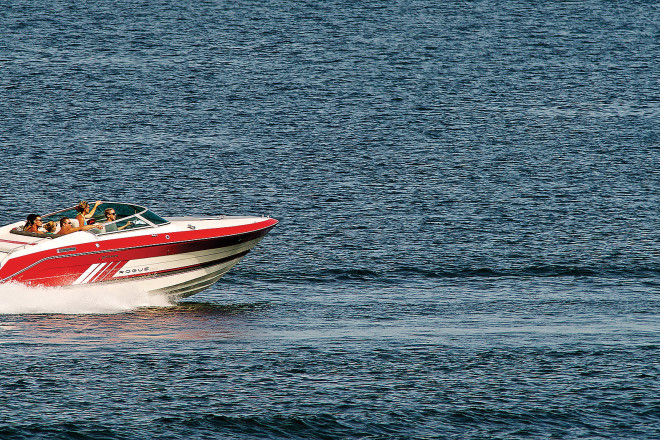Boating Essentials
- Share
- Tweet
- Pin
- Share

For those who decide to buy or rent a boat, along with the initial expense you will need to spend plenty more money outfitting your vessel.
The Bare Essentials
- Life jackets, flares, etc.: If you rent a boat this will all be provided. Be sure you have the items you need to show the Coast Guard – nobody wants trouble with the law. These things have other uses as well. Life jackets are nice to sit on, for example.
- Chart: “Chart” is the word for a map when you’re on the water. The trusty chart should be a part of any good marine adventure, even if you bring a GPS. Even if you never use it, guests might like to peruse it if they’re curious.
- Radio, phone: A VHF (very high frequency) marine radio is a must for lengthy excursions and open-water crossings but your cell phone will suffice for most day trips.
- A stocked cooler: The cooler is an obvious item that few would forget. What you put in the cooler is up to you, but you should bring some fresh water. Yes, there will be plenty of that where you’re going but drinking it is not recommended.
Put some bottles of water in your freezer the night before – they keep your food cold without getting it wet and when the ice melts you can drink it. Try to select a cooler with sturdy handles that can double as a bailer.
- Sunscreen: Be sure to have some of this to offer your guests, even if you don’t want to use it. Sunburn is not a good look for anyone.
- Towels: Always bring a towel, preferably one for each person. This is probably the most versatile item you’ll have in an emergency, it can be a flag, tinder, maybe even a fish net, but most importantly it is nice to wrap up in after a swim.
- Warm clothing: Even when it’s hot, the water is not. The Great Lakes stay pretty cool all through the year and it can get chilly out there when the sun goes away. Lightweight windproof layers are best. Wool and fleece will stay warm if they get wet. Avoid heavy cotton.
Bring some extras for passengers too – they should never be trusted to dress adequately.
- Sunglasses: Don’t bring your best pair unless you tie them to your head. Even the plastic ones sink.
Optional Equipment
Now that you’ve got all the basics, here are some other options for the comfort and entertainment of your crew:
- Music: Good music can be a great addition to a day on the water so put some thought into a playlist. If the boat has no stereo you may want to bring a portable one. If all you have is a cell phone speaker, do everyone a favor and listen to the waves.
- Fishing gear: Fishing can lend some purpose to your lounging or feed the crew for cheap, depending on your skill level. It is best to decide if you will partake in a fishing trip or a pleasure cruise at the outset – fishing is messy.
- Floating chairs and beds: Always popular on a hot day. You’ll find a wide variety for sale, be sure to pick some with cup holders. The inflatable-type require healthy lungs or an air pump and should not be used alongside fishing gear.
- Goggles, masks, snorkels: Take a peek into the deep! Spot some fish, yank on a friend’s toes. These can be a big hit when the conditions are right. They are also incompatible with fishing gear.
- Beach games : If you plan on stopping at a beach it can’t hurt to take a football or Frisbee along, just don’t expect your crew to stay focused on an organized competition.
Guest List
Everybody knows that the best kind of boat is a friend’s boat. If you’re one of the lucky folks going on the water as a guest, your list will be relatively short. You should bring:
- Sunglasses (see above)
- An offering of food or drink: This can be a token quantity. If you ask your host in advance what you should bring you may find yourself relieved of responsibility entirely, or, more often, carrying a large bag of ice.
While this list will put you well on your way toward a safe and enjoyable time on the lake, you may think of other things to bring to make it memorable. Squirt guns, butterfly nets, pirate costumes – whatever floats your boat!
For more information about Coast Guard-required equipment, visit uscgboating.org/fedreqs/default.html.

